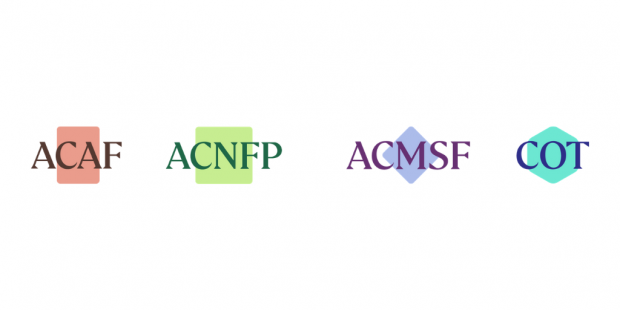
At the Food Standards Agency, our job is to keep people safe in relation to food and to protect public health. Everybody has to eat, so the decisions and recommendations we make about food affect everyone.
We put science at the heart of everything we do and base all our advice on the best scientific evidence. But how do we know it’s the best? This is where our Scientific Advisory Committees (SACs) come in.
Our Scientific Advisory Committees
There are many different aspects of food safety we need to consider. This can range from the microbiological safety of food packaging, to the social science of how people prepare their food or where they decide to eat out.
With regular new stories based on new pieces of research which claim to have major implications for consumer safety, how can we take a view on these and why should consumers trust us?
How can we be sure we have the expertise to give informed advice on all the varied questions that come our way, and who’s checking our work?
To keep science at the heart of our approach, we have four independent Scientific Advisory Committees:
- Advisory Committee on Animal Feeding Stuffs (ACAF)
- Advisory Committee on Novel Foods and Processes (ACNFP)
- Advisory Committee for the Microbiological Safety of Food (ACMSF)
- Committee on Toxicity of Chemicals in Food, Consumer Products and the Environment (COT)

These committees gather scientific information and evaluate its relevance. This is to make sure that our advice is based on the best and most recent scientific evidence.
Membership of SACs includes a wide range of eminent and experienced scientists, practitioners, medics and academics, as well as consumer representatives. With their in-depth knowledge, they can give us assurance that we’re using the right science, drawn from the right sources, and are looking in detail at the scientific questions put to us.
These committees have advised us on everything from assessing the toxicological evidence for the safety of CBD (cannabidiol) to looking at new evidence to support updating our advice on runny eggs to vulnerable groups.
Scientific Advisory Committees and risk analysis after the Transition Period
After the Transition Period, the Scientific Advisory Committees will be an essential part of our risk analysis process. This is to ensure that the high standards of food safety and consumer protection we enjoy in the UK are maintained.
Our SACs will be heavily involved in the risk assessment element of the process, helping to define hazards and estimate potential risk to human and/or animal health.
As part of the risk analysis process, we’ve also created three Joint Expert Groups (JEGs). These will look specifically at regulated products, or products that need to be authorised before they can be sold. These include:
- food contact materials
- additives, enzymes and other regulated products
- animal feed and feed additives
In addition, we also have two strategic committees which help to ensure that we identify, integrate and use the best scientific evidence and expertise from all relevant disciplines to inform and evaluate our work:
- The Advisory Committee on Social Science (ACSS) provides expert strategic advice on our use of the social sciences
- The Science Council provides high-level, strategic insight, challenge and advice to the FSA's Chief Scientific Adviser and FSA Board
Website relaunch
Today (Tuesday 25 August) marks the relaunch of the SAC websites. We’ve invested in making these websites accessible and improving the way you can search. It’s now easier to find details of the committees’ public meetings, which anyone can register to attend online.
Are you interested in a particular topic but don’t know which committee is working on it? We’ve created a new SAC hub so that it’s quicker and easier to get access to their reports and opinions. This site will also be where we host any cross-committee documents and information regarding recruitment campaigns.
We make all our science and evidence public. We believe that this openness builds trust in the evidence-based approach behind all our decisions.

Sut rydym ni'n dilyn y wyddoniaeth – dyma ein Pwyllgorau Cynghori Gwyddonol
Yn yr Asiantaeth Safonau Bwyd (ASB), ein gwaith ni yw cadw pobl yn ddiogel mewn perthynas â bwyd a diogelu iechyd y cyhoedd. Mae'n rhaid i bawb fwyta, felly mae'r penderfyniadau a'r argymhellion rydym ni'n eu gwneud am fwyd yn effeithio ar bawb.
Rydym ni'n rhoi gwyddoniaeth wrth wraidd popeth rydym ni'n ei wneud ac yn seilio ein holl gyngor ar y dystiolaeth wyddonol orau. Ond sut rydym ni'n gwybod mai'r dystiolaeth hon yw’r gorau? Dyma yw rôl ein Pwyllgorau Cynghori Gwyddonol.
Ein Pwyllgorau Cynghori Gwyddonol
Mae angen i ni ystyried llawer o wahanol agweddau ar ddiogelwch bwyd. Gall hyn amrywio o ddiogelwch microbiolegol deunydd pecynnu bwyd, i wyddor gymdeithasol sut mae pobl yn paratoi eu bwyd neu ble maen nhw'n penderfynu bwyta allan.
Gyda straeon newyddion rheolaidd yn seiliedig ar ddarnau newydd o ymchwil sy'n honni bod goblygiadau mawr o ran diogelwch defnyddwyr, sut allwn ni lunio barn ar y rhain a pham y dylai defnyddwyr ymddiried ynom ni?
Sut allwn ni fod yn sicr bod gennym ni’r arbenigedd i roi cyngor gwybodus ar yr holl gwestiynau amrywiol sy'n cael eu gofyn, a phwy sy'n gwirio ein gwaith?
Er mwyn sicrhau bod gwyddoniaeth wrth wraidd ein dull, mae gennym ni bedwar Pwyllgor Cynghori Gwyddonol annibynnol:
- Pwyllgor Cynghori ar Fwyd Anifeiliaid (ACAF)
- Pwyllgor Cynghori ar Fwydydd a Phrosesau Newydd (ACNFP)
- Pwyllgor Cynghori ar Ddiogelwch Microbiolegol Bwyd (ACMSF)
- Pwyllgor ar Wenwyndra Cemegion mewn Bwyd, Cynnyrch Defnyddwyr a'r Amgylchedd (COT)

Mae'r pwyllgorau hyn yn casglu gwybodaeth wyddonol ac yn gwerthuso ei pherthnasedd. Mae hyn er mwyn sicrhau bod ein cyngor yn seiliedig ar y dystiolaeth wyddonol orau a mwyaf diweddar.
Mae aelodaeth o’r pwyllgorau hyn yn cynnwys ystod eang o wyddonwyr, ymarferwyr, meddygon ac academyddion amlwg a phrofiadol, yn ogystal â chynrychiolwyr defnyddwyr. Gyda'u gwybodaeth fanwl, gallant roi sicrwydd i ni ein bod yn defnyddio'r wyddoniaeth gywir, o'r ffynonellau cywir, ac yn edrych yn fanwl ar y cwestiynau gwyddonol a ofynnir i ni.
Mae'r pwyllgorau hyn wedi ein cynghori ar bopeth o asesu'r dystiolaeth wenwyneg ar gyfer diogelwch CBD (canabidiol) i edrych ar dystiolaeth newydd i gefnogi diweddaru ein cyngor ar wyau sy'n rhedeg ar gyfer grwpiau agored i niwed.
Pwyllgorau Cynghori Gwyddonol a dadansoddi risg ar ôl y Cyfnod Pontio
Ar ôl y Cyfnod Pontio, bydd y Pwyllgorau Cynghori Gwyddonol yn rhan hanfodol o'n proses dadansoddi risg. Mae hyn er mwyn sicrhau bod y safonau uchel o ran diogelwch bwyd a diogelu defnyddwyr yr ydym yn eu mwynhau yn y Deyrnas Unedig (DU) yn cael eu cynnal.
Bydd ein pwyllgorau’n chwarae rhan fawr wrth asesu risg, gan helpu i ddiffinio peryglon ac amcangyfrif y risg bosibl i iechyd pobl a/neu anifeiliaid.
Fel rhan o'r broses dadansoddi risg, rydym ni hefyd wedi creu tri Grŵp Arbenigol ar y Cyd. Bydd y rhain yn edrych yn benodol ar gynhyrchion wedi’u rheoleiddio, neu gynhyrchion y mae angen eu hawdurdodi cyn y gellir eu gwerthu. Mae’r rhain yn cynnwys:
- deunyddiau a ddaw i gysylltiad â bwyd
- ychwanegion, ensymau a chynhyrchion rheoledig eraill
- bwyd anifeiliaid ac ychwanegion bwyd anifeiliaid
Yn ogystal, mae gennym hefyd ddau bwyllgor strategol sy'n helpu i sicrhau ein bod ni’n nodi, yn integreiddio ac yn defnyddio'r dystiolaeth a'r arbenigedd gwyddonol gorau o'r holl ddisgyblaethau perthnasol i lywio a gwerthuso ein gwaith:
- Mae'r Pwyllgor Cynghori ar Wyddor Gymdeithasol (ACSS) yn darparu cyngor strategol arbenigol ar ein defnydd o'r gwyddorau cymdeithasol
- Mae'r Cyngor Gwyddoniaeth yn darparu mewnwelediad, her a chyngor strategol lefel uchel i Brif Gynghorydd Gwyddonol yr ASB a Bwrdd yr ASB
Ail-lansio gwefan
Heddiw (dydd Mawrth 25 Awst) rydym ni’n ail-lansio gwefannau’r Pwyllgorau Cynghori Gwyddonol. Rydym ni wedi buddsoddi i wneud y gwefannau hyn yn hygyrch ac i wella'r ffordd y gallwch chwilio. Bellach mae'n haws dod o hyd i fanylion cyfarfodydd cyhoeddus y pwyllgorau, y gall unrhyw un gofrestru i gymryd rhan ar-lein.
Oes gennych chi ddiddordeb mewn pwnc penodol ond ddim yn gwybod pa bwyllgor sy'n gweithio arno? Rydym ni wedi creu hwb Pwyllgorau Cynghori Gwyddonol newydd fel ei bod yn gyflymach ac yn haws cael mynediad i'w hadroddiadau a'u barn. Bydd y wefan hon hefyd yn cynnwys unrhyw ddogfennau a gwybodaeth traws-bwyllgor am ymgyrchoedd recriwtio.
Rydym ni’n gwneud ein holl wyddoniaeth a thystiolaeth yn gyhoeddus. Credwn, trwy fod yn agored fel hyn, ein bod yn adeiladu ymddiriedaeth yn y dull sy'n seiliedig ar dystiolaeth y tu ôl i'n holl benderfyniadau.
Leave a comment